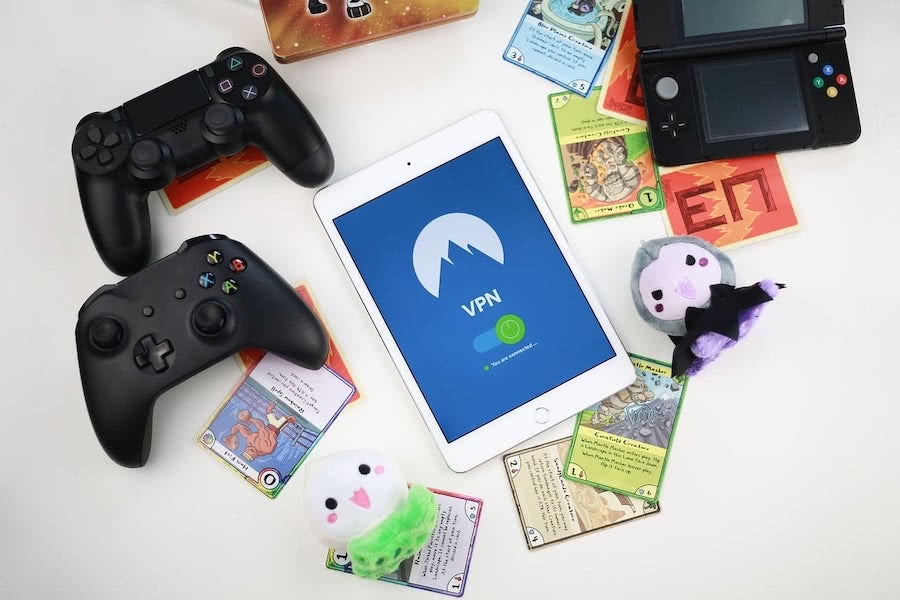If you’re considering a virtual private network (VPN) for your gaming rig, you’re in good company. In a survey performed by Geek.com, about 18 percent of respondents said that they use VPNs while gaming. That’s slightly higher than the number of computer users in the United States who use VPNs for general browsing, and VPN adoption seems to be spreading.
Of course, VPNs offer plenty of value to gamers, but some of the technology’s benefits are misunderstood. Here’s an overview of the best reasons to protect your connection (and how to ensure that your VPN is up to the task).
Gaming VPNs Provide Enhanced Security
VPNs work by establishing an encrypted connection with a remote server. All internet traffic goes through this connection, so if someone tries to determine what you’re doing online, they’ll have to get through another layer of protection before they find anything useful.
That doesn’t mean that you can use your internet connection for nefarious purposes, but it does mean that malicious attackers won’t have easy access to your saved games and private data. If you win a game of Fortnite and the loser tries to hack your connection to get retribution, they won’t get far. Additionally, your internet service provider (ISP) won’t be able to monitor your connection and sell the collected data.
Some VPNs Allow Gamers to Access Exclusive Content
Many modern games have region-locked content. Certain features might not be available in certain parts of the world because of intellectual property rights issues, local legislation, or for various other reasons. When you’re using a VPN, however, you can bypass many of these restrictions. Console gamers can access every Playstation PSN and Xbox Live exclusive, and PC users can download games from countries with earlier launch dates.
Granted, most U.S. gamers can access most of their games' content without using a VPN, but if you travel frequently or if you live outside of North America, a VPN could greatly improve your gaming options. You can also play multiplayer games in every region, so if you’re having trouble finding worthy competitors on local servers, a VPN could be a decent solution.
VPNs Can Improve Connection Speeds, But Only in Certain Situations
Adding a VPN won't significantly speed up your connection to online games in most circumstances, since you're effectively adding another layer to your connection. If you're gaming from a home network and you're experiencing high amounts of lag, you're probably better off investing in a new router or modem.
However, if you're using a public connection (for instance, a university internet service), you might see reduced ping times and less overall lag when using a secure connection. Network administrators often put restrictions on the ports used for gaming, but because a VPN prevents networks from identifying data, the services act as a workaround on these networks. Additionally, since the FCC stopped enforcing net neutrality laws, some ISPs have targeted gaming traffic, offering "fast lanes" for consumers willing to pay extra for the service. VPNs can help some gamers maintain fast connections at a much lower rate.
If you're investing in a VPN for gaming, do some research before committing to a particular service. Sites like vpnAlert provide useful rankings of top VPNs, which can help gamers find affordable services that won't slow down their connections. Look for VPNs that provide plenty of options for server connections, especially if you're hoping to access region-locked content, and make sure that your service doesn't have data caps. You can plenty of excellent gaming VPNs for less than $10 a month, and if you're serious about protecting your privacy online, they're well worth the money.


